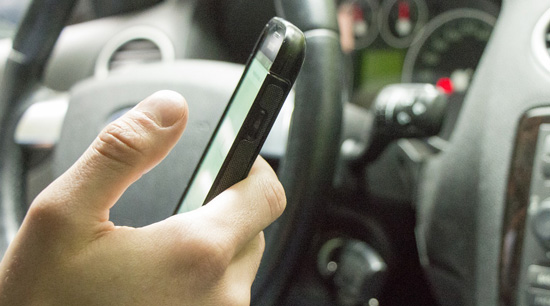Auto insurance rates seem to keep going up! Are you aware that by taking a defensive driving course, your insurance carrier may lower your premium? In some states, taking one of these courses may even help you remove points from your driving record.

A defensive driving course can help you save your time, money, and the lives of others by avoiding bad driving habits and understanding that you cannot control everything on the road. All drivers should take a defensive driving course once every few years. If not for the discounted insurance premium, at least to remain aware of lifesaving driving techniques.
With your vehicle and driving safety in mind, Autobahn Performance collected the following defensive driving tips, unsafe behaviors, and answers to help you become a better driver.
Defensive Driving Definition
Defensive driving is: Driving to save lives, your time, and money regardless of the road, weather conditions, and the actions of other drivers.
What Are Unsafe Driving Behaviors?
Driving behaviors that result in, YOU, being in less control of yourself and your vehicle are considered unsafe driving habits. The following are some of the most unsafe driving behaviors:
1 – Improper Speed – Driving at the improper speed is the number one behavior that contributes to tickets and accidents. In a recent year, speeding contributed to nearly 30% of all collision deaths.
Improper speed can be defined as driving too fast for road or weather conditions, as well as driving in excess of the posted speed limit.
2 – Violating Right-of-Way – It is essential to understand that NO ONE has the right-of-way. Traffic regulations only mandate who must YIELD the right of way.
In a situation where a driver is required to yield the right-of-way but fails to do so, it becomes your responsibility to stop or yield as necessary for safety.
Note: More than half of all collisions happen at intersections. Likewise, rural intersections can present just as much danger as those in an urban setting.
3 – Following Too Closely – Commonly known as tailgating, is considered aggressive driving and is a ticketable offense.

The risk of a collision is increased by tailgating because: the distance needed to stop your vehicle is dependent on the speed you are traveling, the condition of the driver, the vehicle, and the road.
Use what is known as the three-second rule to give yourself the proper time to see hazards, react to them, and stop, slow down, or turn to avoid a collision.
4 – Passing Improperly – When passing another vehicle, there are risky behaviors that should be avoided. Some of these behaviors include:
- Accelerating beyond the speed limit to pass.
- Cutting off another driver.
- Passing in no-passing zones (lane or roadway with a solid line (white or yellow), school zones, school buses when stopped and signaling the boarding or discharging of students, railroad crossings, bridges, tunnels, posted no passing zone)
- Weaving in and out of traffic.
- Passing when there is not enough time or space to do so.

Passing improperly is very dangerous, violates the law, and could result in a deadly head-on collision. Protect yourself and other drivers by not doing this.
5 – Turning Improperly – Making improper turns is another contributing factor to collisions and violations. Improper turns occur when:
- You turn from the wrong lane.
- You turn into the wrong lane.
- You make a U-turn from a lane not designated as such.
Making safe and legal turns is as simple as:
- Entering the correct turn lane in advance of the intended turn.
- Using your turn signal to show your intent to turn.
- Turn into the proper lane.
Note: It is a ticketable offense to change lanes or turn without using your turn signals.
Seatbelt Use – It’s the Law
Wearing your seatbelt every time you operate a vehicle is one of the most essential safety mechanisms you can employ. Seatbelts will increase your chances of surviving a collision by:
- Preventing ejection from the vehicle.
- Keeping passengers from flying around inside the vehicle.
- Keeping the driver in the driver’s seat where he or she can maintain or attempt to regain control of the vehicle.
Follow the link to find out the seatbelt law where you live.
Hands-Free Systems and Distracted Driving
Nearly everyone has a cell phone. Using or manipulating that phone while driving takes your attention from the road, and many states are now responding with strict usage laws.

While the utilization of a hands-free system may appear to be safer, it is not. The use of your phone in your hand, through voice commands, or other hands-free methods while operating a vehicle are all equally unsafe, as they reduce one’s cognitive awareness to the road.
Follow the link to find out the cell phone usage and text while driving law where you live.
How Does One Become A Good Defensive Driver?
From the time you begin using defensive driving techniques and avoid unsafe driving behaviors, your safety is already improving. As with any skill set, the more you know and the more you practice, the better you will be.
It is essential to remain aware of the following defensive driving habits every time you get behind the wheel:
Decisions – Every driving decision you make should be legal and safe.
Personal Space – Your personal driving space in and around your vehicle should be maintained safe and stress-free.
Arrive Safely – Reach your destination safely without a ticket or collision, and without affecting the safety of other drivers.
Share the Road – Always use common sense, cooperation, and be courteous.
Pay Attention – Recognize in yourself and other drivers, the risks of hazardous driving behaviors and conditions.
Improving Driving Skills and Awareness
The tips above are intended to assist you in understanding what it means to be a defensive driver and reduce the risk of a collision or getting a ticket.
In this article, we have defined some unsafe driving habits, discussed how to properly change lanes, the dangers of cell phone use, and simple measures to be a defensive driver.
The more you learn and practice good driving habits, the better driver you will become. The better driver you are, the less likely you will be to receive a traffic violation or be involved in an accident.
Sources:
https://www.nsc.org/
(770) 409-8288